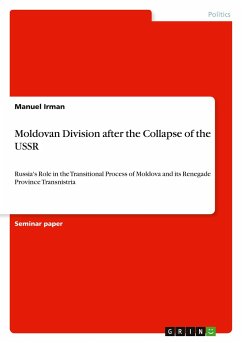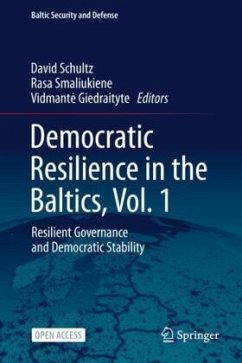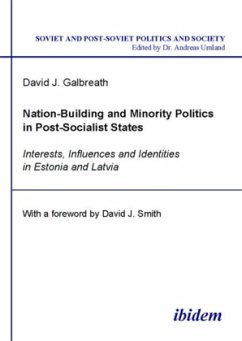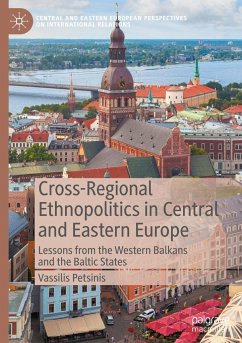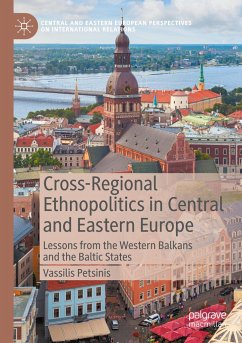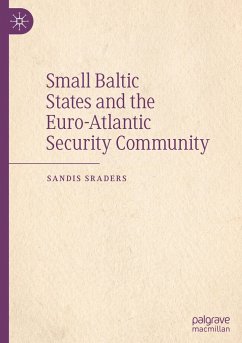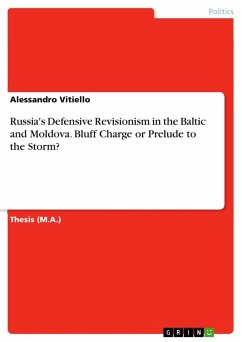
Russia's Defensive Revisionism in the Baltic and Moldova. Bluff Charge or Prelude to the Storm?

PAYBACK Punkte
0 °P sammeln!
Thesis (M.A.) from the year 2018 in the subject Politics - Region: Eastern Europe, grade: 110/110 cum laude, Università degli Studi Roma Tre, course: MA in International Relations, language: English, abstract: This work focuses on the concept of revisionism and on its significance for explaining Russia's current strategy towards Eastern Europe. It explores its evolution - or applicability - through theoretical debates. By suggesting a new perspective to the studies on revisionism, it highlights the impact of Russia's foreign policy in Eastern Europe, by providing deductions on the Baltic and ...
Thesis (M.A.) from the year 2018 in the subject Politics - Region: Eastern Europe, grade: 110/110 cum laude, Università degli Studi Roma Tre, course: MA in International Relations, language: English, abstract: This work focuses on the concept of revisionism and on its significance for explaining Russia's current strategy towards Eastern Europe. It explores its evolution - or applicability - through theoretical debates. By suggesting a new perspective to the studies on revisionism, it highlights the impact of Russia's foreign policy in Eastern Europe, by providing deductions on the Baltic and Moldova. How defensive-revision-prone are these contexts?This work focuses on the concept of revisionism and on its significance for explaining Russia's current strategy towards Eastern Europe. It explores its evolution - or applicability - through theoretical debates. The literature of international relations (IR) is diverse. Some theories such as Liberalism adopt this concept, others do not. Though, only Realism has examined it in depth, by questioning - for instance - what are its relevant causes. The realist theoretical framework maintains that the international system be anarchic and that, consequently, states fear each other and seek survival. It undoubtedly displays an internal tension between defensive and offensive views. This distinction is reflected in the study of revisionism. Defensive realists argue that states tend to avoid interstate conflicts due to systemic conditions. Opposing Mearsheimer and the offensive assumption that states be belligerent, Schweller, Snyder, Zakaria - among other - develop the waltzian defensive perspective to explain such lack of incentives for expansionism. Consequently, they stress the importance of domestic variables and of the context. This work identifies with the latter approach. It develops a theoretical model of revisionism. More specifically, a precise kind, centred on inner mechanisms and on defensive dimension of this concept. Yet, is there a possible defensive revisionism? Theory has still not well-developed such concept. Realism indeed, by debating on the issue of revisionist states only provides an interstate model which only explains the offensive dimension of this concept. Though, how to explain border modelling without such schema? Transborder issues, overall since the collapse of the Soviet Union in 1991 and the end of the bipolar phase, represent a major source of conflicts. Within the post-Soviet space, they acquire a central importance. Which mechanisms affect this area, and how a defensive revisionism may represent an impact for these countries?





